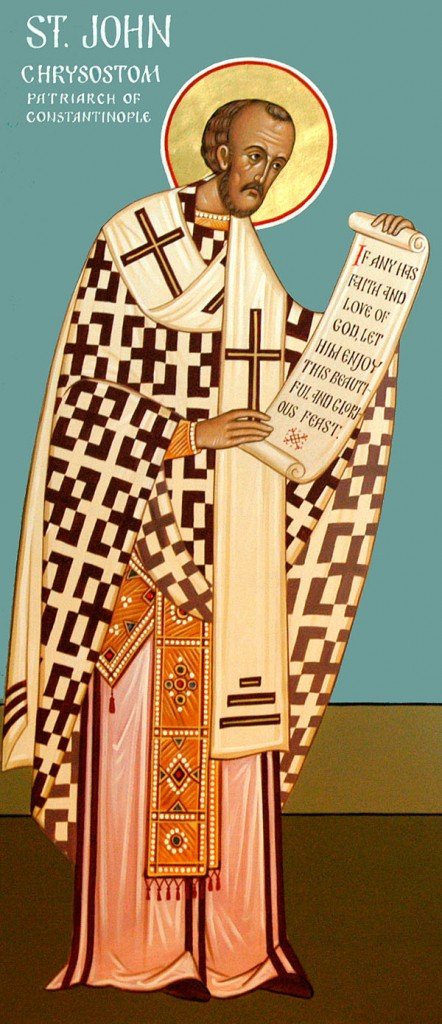 I have been presenting in this article some of St. John Chrysostom’s thoughts on the “Light of Tabor”. We know that some scholars speculate that this event might have taken place after the Resurrection. If, however, it happened prior to the Resurrection, we can understand why the Church has had such a struggle in knowing how to exactly state Who Jesus is. We know that the Council finally, after many different heresies about Who Jesus is, came up with the statement that Jesus is truly God and truly man and that the fact that He is also God did not dictate how He was to live as a man.
I have been presenting in this article some of St. John Chrysostom’s thoughts on the “Light of Tabor”. We know that some scholars speculate that this event might have taken place after the Resurrection. If, however, it happened prior to the Resurrection, we can understand why the Church has had such a struggle in knowing how to exactly state Who Jesus is. We know that the Council finally, after many different heresies about Who Jesus is, came up with the statement that Jesus is truly God and truly man and that the fact that He is also God did not dictate how He was to live as a man.
I would quickly add that when it happened really doesn’t matter to me. I think the more important question is: Why did Christ transfigure Himself on Tabor to His apostles? It was obviously meant to reveal something to the apostles. There is a lesson to be learned from this event. I think that is why St. John struggled with the whole idea of the Light of Tabor.
St. John wrote that the glory that was revealed on Tabor, the glory of Christ’s divinity, is the very same glory that the incorruptible bodies of the righteous will receive in the Celestial Kingdom. Further, this glory is perceived as light. But the light, says Chrysostom, which will be revealed more fully at the Last Day, is not a natural or physical light, for it is not “accessible to mortal eyes.” The reason why, then, the three disciples were unable to bear even the glory revealed at the Transfiguration was because the supernatural and immaterial nature of this light is fully perceptible only to incorruptible and immortal eyes.
It is important to note here that according to St. John the three apostles experienced this vision with their physical, bodily eyes, even if only in an imperfect manner. But even though the three disciples actually saw Christ transfigured by His divine glory, they were nevertheless unable to contain the vision because, as St. John explains, they were still subject to corruption and death. Hence their reported reaction.
All this highlights another very important aspect in Chrysostom’s appreciation of the significance of the Transfiguration, namely the expected glorification of the human body. That this happened to Jesus is a revelation that it will help to all humans who, because of their belief in Jesus, are able to experience it in this way. Thus, the whole human person, body as well as soul, is called to participate in the glory of which the Transfiguration is but a humble foreshowing.
